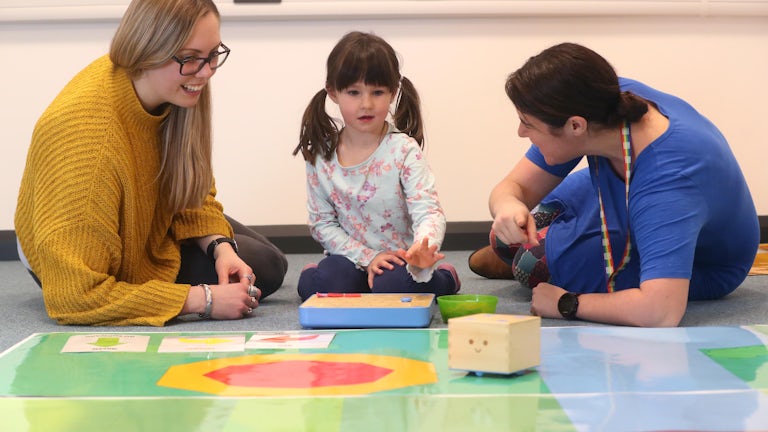Cardiff University Centre for Human Developmental Science
The Cardiff University Centre for Human Development Science (CUCHDS) provides opportunities for research and training in the study of human development.
We carry out research and training in the study of human development from conception to adulthood.
Our research and training is focused on child development and we take a lifespan approach to the study of human development in social contexts.
We deliver an interdisciplinary research approach that unites a developmental science agenda from psychology with knowledge in education, health and social care, bringing contributions from policy and practice stakeholders across these sectors. We also embrace developmental neuroscience approaches with close ties to the Cardiff University Brain Research Imaging Centre (CUBRIC).
We work closely with intervention scientists and policymakers in Welsh Government and have the capacity to translate rigorous research into effective interventions and policy guidelines that can improve people’s quality of life.
Facilities
We are based in the Cardiff University Centre for Human Developmental Science (CUCHDS) - a state of the art facility containing specially designed laboratory space for studies of children and adults.
Our facilities include:
- sensory room
- observation labs
- neuroimaging labs - electroencephalography (EEG) and functional near-infrared spectroscopy (fNIRS)
- Neurodevelopment Assessment Unit (NDAU) (Waterloo Foundation-funded unit for children referred with developmental issues)
- eye tracking (mobile screen-based and head-mounted)
- dedicated teaching space
Research
CUCHDS has brought together well-established research groups and programmes into one centre for better research collaboration. Key groups and programmes include:
- Wales Autism Research Centre (WARC)
- The Fertility Studies Group
- Neurodevelopment Assessment Unit
- Tiny to Tots
- Wales Adoption Cohort Study
- Cardiff Babylab
This collaborative environment is conductive to hosting undergraduate and postgraduate training and programmes including:
- Undergraduate placements
- Undergraduate summer internships
- MSc in Children's Psychological Disorders
- The Educational Psychology Doctoral Training Programme
- PhD in Psychology (Developmental Science)
Impact
- Through our Wales Adoption Cohort Study, we have provided evidence for the design, implementation and evaluation of the Adopting Together Service.
- Computerised emotion training is now offered to 5-7 year olds who have come through the Neuro-Development Assessment Unit (NDAU) to improve psychosocial functioning in children with emotional and behavioural problems. It also is used in intervention and prevention programmes in the Netherlands, Switzerland and Germany.
Meet the team
Director
Deputy Director

MSc in Children's Psychological Disorders
Study the psychological factors that cause and maintain emotional and behavioural problems in children.
Our school
Images
Next steps
Research that matters
Find out more about the School of Psychology.
Postgraduate research
Our research degrees give the opportunity to investigate a specific topic in depth among field-leading researchers.
Our research impact
Our research case studies highlight some of the areas where we deliver positive research impact.


















